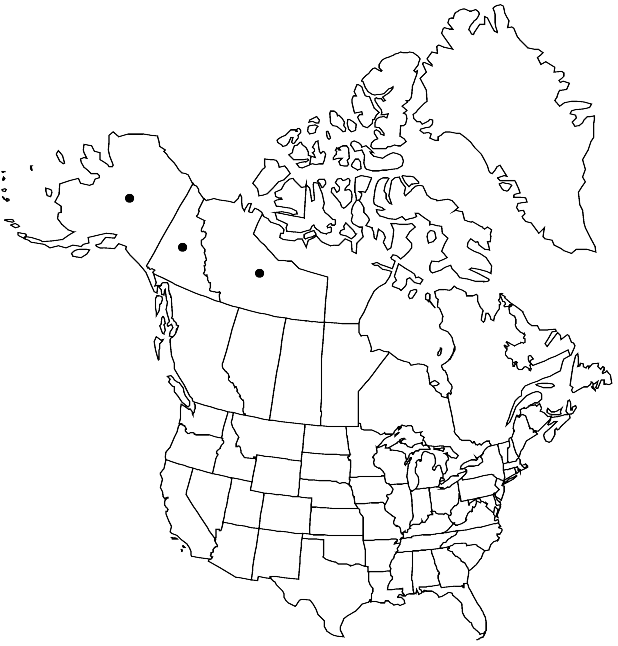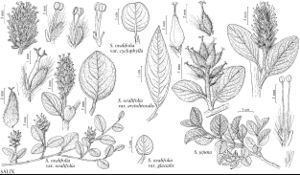familySalicaceae
genusSalix
subgenusSalix subg. Chamaetia
sectionSalix sect. Ovalifoliae
speciesSalix ovalifolia
Difference between revisions of "Salix ovalifolia var. arctolitoralis"
Canad. J. Bot. 47: 795. 1969.
IllustratedEndemic
Basionym: Salix arctolitoralis Hultén Svensk Bot. Tidskr. 34: 373, fig. 1. 1940
Treatment appears in FNA Volume 7. Treatment on page 77.
imported>Volume Importer |
imported>Volume Importer |
||
| Line 58: | Line 58: | ||
|publication year=1969 | |publication year=1969 | ||
|special status=Illustrated;Endemic | |special status=Illustrated;Endemic | ||
| − | |source xml=https:// | + | |source xml=https://bitbucket.org/aafc-mbb/fna-data-curation/src/2e0870ddd59836b60bcf96646a41e87ea5a5943a/coarse_grained_fna_xml/V7/V7_79.xml |
|genus=Salix | |genus=Salix | ||
|subgenus=Salix subg. Chamaetia | |subgenus=Salix subg. Chamaetia | ||
Latest revision as of 22:36, 5 November 2020
Leaves: petiole 4–16 mm; largest medial blade narrowly to broadly elliptic or obovate, 25–46 × 10–20 mm, 1.6–3.4 times as long as wide, base convex, apex convex, acute, acuminate, or rounded, abaxial surface glabrous, sparsely pubescent, or pilose. Catkins: staminate 23–46 × 8–11 mm, flowering branchlet 3–24 mm; pistillate stout to subglobose, 28–48 × 10–28 mm, flowering branchlet 5–22 mm. Staminate flowers: abaxial nectary 0.8–1.1 mm, adaxial nectary 0.7–1.1 mm, nectaries connate and cup-shaped. Pistillate flowers: abaxial nectary absent, adaxial nectary ovate, 0.5–1.9 mm; stipe 0.2–1.4 mm; ovary often glaucous, glabrous. Capsules 5.2–9.6 mm.
Phenology: Flowering early Jul-late Aug.
Habitat: Arctic, coastal beach ridges, sand spits, tundra meadows
Elevation: 10-30 m
Distribution

N.W.T., Yukon, Alaska.
Discussion
Selected References
None.
Lower Taxa
None.
